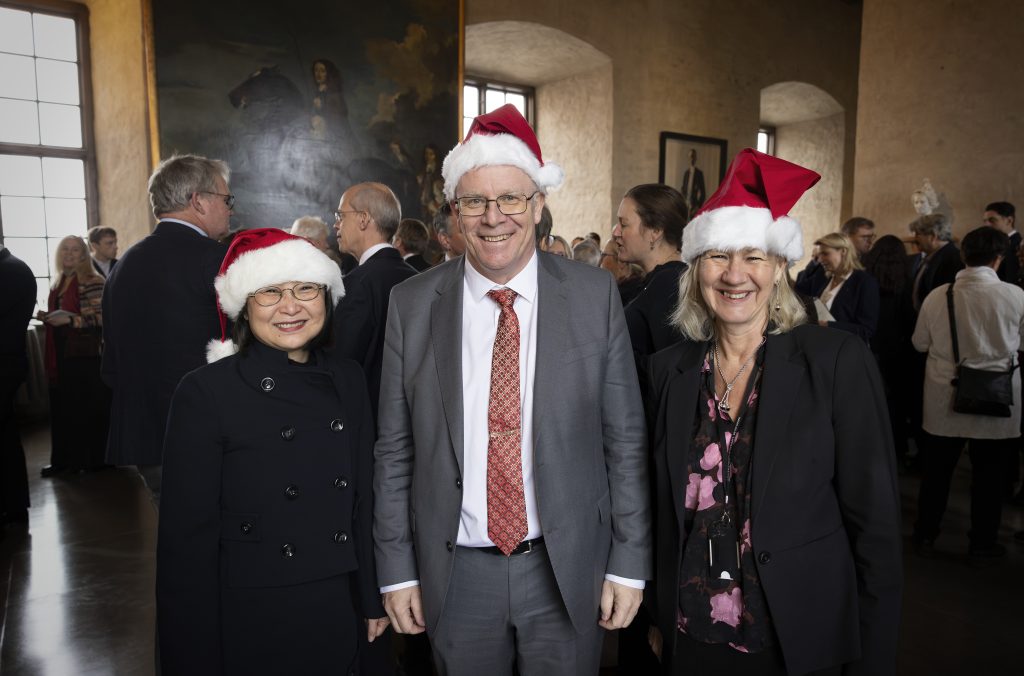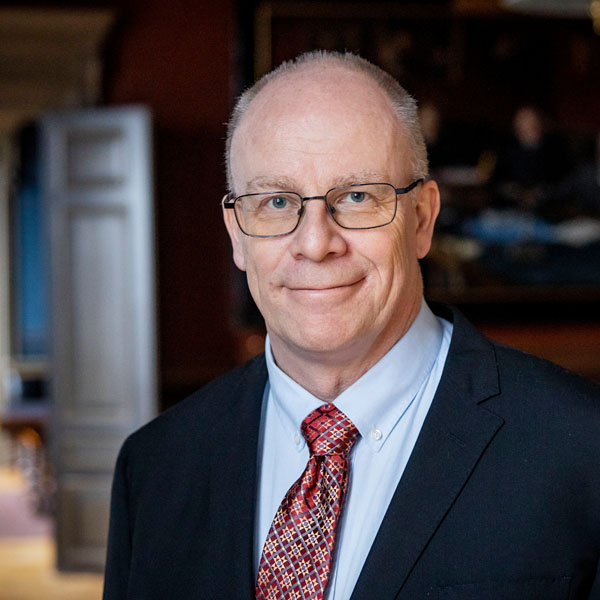The University Management has just returned from a week-long visit to the United States. This was a long-planned trip aimed at strengthening ties with some of the top research universities in the US. A trip like this is a major investment, in terms of both time and money. We have a clear agenda when we travel and the common aim in all trips of this kind is that the meetings and events will strengthen the University’s international standing. At the research level, our University’s scientists and scholars have had many successful collaborations in the US over a long period of time, but we have not had any formalised exchanges at the organisational level. The aim this time was therefore to open the doors to new collaborations in a few selected areas: AI, life sciences, quantum technologies, sustainable development. In cooperation with the Swedish Embassy in Washington, a meeting was organised where, together with seven other Swedish universities, we took up common international issues relating to research openness and security. Through the embassy, meetings were also arranged with the EU Science Counsellor, the Department of Energy and the Association of American Universities, among others. In addition, we made study visits to the University of Maryland, the New York Academy of Science, Harvard University and the Broad Institute. Everywhere we went, our initiatives in the new UUniFI interdisciplinary research institutes attracted a lot of interest and curiosity, with good discussions about possible future collaborations. While in the country, we also took the opportunity to meet the Consul-General of Sweden in New York, Erik Ullenhag, and the Honorary Consul of Sweden in Boston, Ann-Kristin Lund – all according to plan.
But despite careful planning, the trip did not turn out quite as we thought it would when we started talking about it almost a year ago. As everyone knows, a lot has happened in the United States of America recently. The arrival of the new President has brought about a completely new situation that made the trip and our conversations important in a way we could not have foreseen. With us on the trip was Professor Dag Blanck, and I have asked him to write about his experiences and reflections. Here is his text.
A tour of US academic institutions today is a stunning and unsettling experience. Donald Trump’s return to the White House has brought major and rapid changes to many areas of American society, including research and education. The new administration has issued a whole host of Executive Orders affecting higher education and research, and has also started a process to abolish the federal Department of Education. Columbia University has come under fire, and international students taking part in political protests risk losing their visas and being deported.
Virtually everyone we met was deeply concerned about what was going on. While we know that private donations and philanthropy play a major role in the United States, the federal government provides significant research funding, through the National Institutes of Health, the National Science Foundation, the Department of Energy, and the National Oceanic and Atmospheric Administration, among others. These and other agencies have seen their funding reduced and funding for various projects has been withdrawn. The issue of indirect costs has become central. They have been significantly reduced, which means that research projects have to be cut back considerably or cannot be carried out at all. The uncertainty has led many universities to impose hiring freezes and/or lay off staff. Admission to doctoral programmes has been reduced or frozen. This is true even at private, resource-rich universities like Harvard or Johns Hopkins.
The pace of change is rapid, making it difficult to keep track of what is happening. The administration has targeted what it perceives as politicised (‘woke’) research, removing references to issues such as diversity, gender and race, and has ordered, for example, that Columbia’s Department of Middle East, South Asian and African Studies (MESAAS) be restructured and placed under academic receivership. If not, Columbia risks losing significant amounts of federal research funding. There is a clear link here to the protests against the Gaza war, and a direct punishment of a single university that has shaken up other universities.
Academic freedom is under severe pressure. In January, the Association of American Universities, an advocacy organisation for the 71 leading research universities, whose president Barbara Snyder we met, made a very strong statement about the importance of resistance (https://www.aaup.org/report/against-anticipatory-obedience). The AAU warns against what Yale historian Timothy Snyder calls ‘anticipatory obedience’, i.e. adapting even before decisions have been made. The AAU is also involved in the legal proceedings that are underway to prevent the government from cancelling research grant payments that have already been approved. Barbara Snyder’s comment that she never imagined the AAU would sue the federal government, which for more than half a century has played such a major role in consolidating the standing of the United States in research and innovation, is telling.
What conclusions can be drawn? American academia is under attack, and trust in universities and science is declining in the US. A lead editorial in the New York Times even talks about “The Authoritarian Endgame on Higher Education” (https://www.nytimes.com/2025/03/15/opinion/trump-research-cuts.html).
Many of our interlocutors, anxious as they were, nonetheless advised us to keep calm and wait and see what the consequences will actually be. Perhaps they are being a little sanguine. The position of universities is one element of the Trump administration’s attack on the federal government at large, and is partly dependent on upcoming Supreme Court rulings.
We must, however, be prepared for major changes to come. The question of whether we have what Lars Strannegård in DN recently called an ‘Einstein moment’, namely a chance to take advantage of the opportunities to recruit well-qualified people from the US to Sweden, also came up for discussion. Here, many people were of the opinion that it is mainly among early career researchers who are willing to move abroad that we might find interested candidates. The other alternative for talented young people may be to change careers and look outside academia.
Voices from our conversations with Harvard, the Broad Institute, the AAU, the University of Maryland, and the New York Academy of Sciences, among others, were unanimous in speaking of the need to maintain international contacts, including with Europe and Sweden. Over time, research impulses have travelled back and forth across the Atlantic. The Humboldtian university traditions from Germany influenced the emergence of the modern research-intensive American universities at the end of the 19th century. Since the mid-20th century, in a kind of partnership with the federal government, these universities have developed into world-leading and world-dominating institutions, attracting researchers from all over the world.
The question that arises is whether the current academic continental plates are now in the process of shifting. Is US dominance under threat? Perhaps the tide is turning, with US colleagues now looking to Europe, for example, for support. In these difficult times, cooperation becomes particularly important as a ‘lifeline’, as one person put it. It was striking how well we were received, and how much interest there was in interacting with us. “We need you,” as someone said. An abiding impression is how important the international academic community is, and that it can be a counterforce to the authoritarian and anti-intellectual movements of our time.


